15. World Views in Collision (i)
In this lesson and the next one we describe some of the (inevitable) clashes that occur between the Christian world view and other (non-Christian) world views. To illustrate, we consider how this occurs in relation to:
- history and eschatology (the last things, the end of the world)
- mission
- power encounters
This is not a "compare and contrast" exercise, weighing up and evaluating different points of view. While it is important to identify common ground, the Christian view is ultimately (and divisively): "Let God be true" (Romans 3:4). There is no comparison.
 When ideas collide.
When ideas collide.
The Great Divide
The single event that has divided human history (BC/AD, and in many other ways) is the birth of Jesus Christ, Son of God, Son of Man, Messiah, Saviour. These names and titles are "loaded", and are guaranteed to generate controversy.
Think about it. God of Heaven, Eternal, Creator, Master of the Universe, was reduced to a single cell that multiplied and developed over nine months and resulted in the birth of a baby in an obscure town in Palestine, a rebellious province of the Roman Empire. That baby grew up and expected people and the spirit world to call Him "Lord". This event is the pivot of eternity and the key to understanding the human story - so Christians believe. More controversy.
The conflict that the birth of Jesus would bring was evident very early to his parents, Joseph and Mary:
"Simeon took (Jesus) in his arms and praised God, saying: 'Sovereign Lord, as you have promised, you may now dismiss your servant in peace. For my eyes have seen your salvation, which you have prepared in the sight of all nations: a light for revelation to the Gentiles, and the glory of your people Israel.' The child's father and mother marvelled at what was said about him. Then Simeon blessed them and said to Mary, his mother: 'This child is destined to cause the falling and rising of many in Israel, and to be a sign that will be spoken against, so that the thoughts of many hearts will be revealed. And a sword will pierce your own soul too'." (Luke 2:28-35)
Jesus' earthly ministry was filled with conflict
When Jesus came, He was not the Messiah people were expecting, so they eventually cried out "crucify him". Western literature loves Jesus' moral teaching, and his parables, but not the cross at the end of the road. The modern world's metanarrative about Christianity often omits the cross; it is too confronting; it raises too many difficult questions.
Jesus was both a physical and spiritual target. He challenged Satan. He challenged the status quo. He would do so today. Jesus went straight to the heart of prevailing assumptions, eg
- the woman at the well (John 4)
- In the Gospel account, the Samaritan woman was surprised that Jesus would talk to her, since the Jews did not associate with Samaritans. Moreover, the disciples were surprised to return and find Jesus talking to a woman, since that was also against the culture of the day. Jesus rejected racism and sexism; He demonstrated that everyone is loved by God, regardless of their gender, race, religion or situation in life
- the rich young ruler - this man sought to justify himself, claiming that he had obeyed all of the commandments from his youth, but his piety and compliance were not enough for Jesus (Matthew 19:16-22)
- the Pharisees and their hundreds of laws (613 laws, 365 negative commands and 248 positive laws, plus amendments)
- He mixed freely with tax collectors and sinners, making Him ceremonially unclean (Luke 7:39).
- He ate and drank with them and was called a glutton and a drunkard (Luke 7:34).
- He ate with ceremonially unclean hands (Luke 11:38).
- He broke their Sabbath laws by healing people and gleaning corn to eat (Luke 13:14, Matthew 12:1, 2)
- He forgave people's sins, which to the Pharisees was blasphemy (Luke 5:21).
- He freely criticised the Pharisees for their hypocrisy and self-righteousness (Luke 11:37-52)
- The idea of Jesus criticising them was an outrage (Luke 6:11).
- They also saw Him as a threat both to their popularity and their authority over the people (Luke 13:17).
- Nicodemus (a ruler of the Jews, John 3)
- the disciples (eg in relation to the nature and timing of His kingdom)
- Pilate (in relation to the nature of power and the real Kingdom)
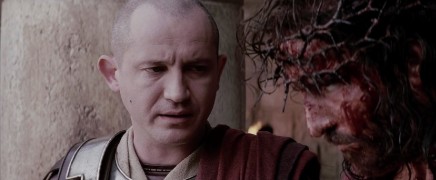
According to the Sedur (the Jewish prayer book), Jewish men around the world have long prayed, "Blessed are you, Hashem, King of the Universe, for not having made me a Gentile. Blessed are you, Hashem, King of the Universe, for not having made me a slave. Blessed are you, Hashem, King of the Universe, for not having made me a woman."
Consider this in the context of how Jesus' words (the opening statement of His public discourse) upset the people in the Nazareth synagogue, when he (a Jew) highlighted the ministry of Elijah, whom God sent to minister to the needs of a Gentile woman; and Elisha, whom God used to heal the Gentile leper Naaman (Luke 4:24-27). This was incendiary. The religious leadership tried to kill him; their reaction was a hallmark of his ministry. Jesus always confronted/ challenged deep-seated beliefs and comforts; that sort of behaviour inevitably leads to conflict.
Jesus came to seek and save those who were lost (Luke 19:10), to bring humanity back to God, but on His terms of truth - even if it upset all of the entrenched spiritual and cultural orders of the day... which it did, and still does. Jesus came to turn everything upside down (or the right way up). He targeted "sacred cows". He rearranged the way we see, value, judge. Some people consider this a form of brainwashing - but we need our brains to be clean ("You are already clean because of the word I have spoken to you." John 15:3). He opens our eyes, like those of Paul after his conversion (Acts 9:18). When those around us do not have their scales removed, differences emerge and conflicts occur.
The Conflict Continues - Christians in the Firing Line
Authentic Christianity has always challenged empires, cultures, religions, political, economic and social systems, as well as spiritual enemies.
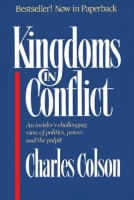
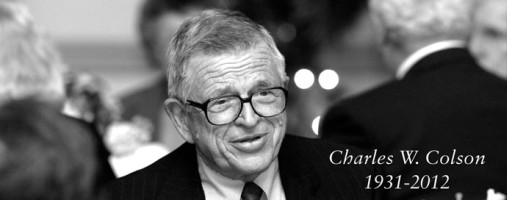
Conflicts have always existed between Christianity and non-Christian views embedded in the world system. This is despite the fact that the incarnation was an essential element in God not picking a fight, but loving and seeking to reconcile the world to Himself, ie reaching out to people, rather than their mistaken beliefs.
"He who is not for me is against me." (Matthew 12:30)
"I have given them your word and the world has hated them, for they are not of the world any more than I am of the world." (John 1 7:14)
"For our struggle is not against flesh and blood, but against the rulers, against the authorities, against the powers of this dark world and against the spiritual forces of evil in the heavenly realms." (Ephesians 6:12)
"Do not be bound together with unbelievers; for what partnership have righteousness and lawlessness, or what fellowship has light with darkness? Or what harmony has Christ with Belial, or what has a believer in common with an unbeliever? Or what agreement has the temple of God with idols? For we are the temple of the living God" (2 Corinthians 6:14-16a)
"Do not love the world or anything in the world. If anyone loves the world, love for the Father is not in them. (1 John 2:15)

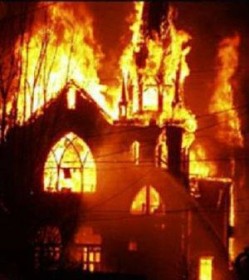
Jesus warned his disciples: "If the world hates you, keep in mind that it hated me first". (John 15:18) Most people demand unquestioning acceptance of (and respect for) their beliefs (or their right to think differently). He said that the only way we can have life is if we are prepared to lose it (and receive it back from Him with his way of thinking now built in).
Moreover, in order to carry out the mandate of reaching the world for Christ, Christians must adopt a Biblical worldview in all aspects of life, and apply it.
The Church vs World Power Structures
The world runs on power structures - we need to choose which power structure we submit to. This begins in ourselves, because we have free will (cf "don't tell me what to do"). We can develop our own world views, but eventually need to choose between our way and God's way. There is something wilful in everyone that assumes we have it "all worked out", or that we can do so on our own. This leads to pride. We don't like being challenged; that threatens our selfishness, assurance and feelings. We will talk more about power and authority in the next lesson.
So, whom can we trust? Surely not our own opinions, because it is hard to be objective if you are subjectively involved. Politicians desperately want us to believe their "spin". Advertisers infer that we will choose inferior products if we do not follow their recommendations. TV delivers biased (fake) news they assume we will accept at face value. Who ever questions the news channel?
There are competing agendas on all sides; clashes are inevitable, even in societies that (outwards) that appear to work and be compliant and peaceful (just wait until someone who is powerful or influential does not get his/her own way).
It was not long until persecution drove most of the early church out of the relative cocoon of Jerusalem (Acts 8:1); they preached the message wherever they travelled. As they went they encountered both open hearts and violent opposition, mixed with curiosity:
"While Paul was waiting for them in Athens, he was greatly distressed to see that the city was full of idols. So he reasoned in the synagogue with both Jews and God-fearing Greeks, as well as in the marketplace day by day with those who happened to be there. A group of Epicurean and Stoic philosophers began to debate with him. Some of them asked, 'What is this babbler trying to say?' Others remarked, 'He seems to be advocating foreign gods.' They said this because Paul was preaching the good news about Jesus and the resurrection. Then they took him and brought him to a meeting of the Areopagus, where they said to him, 'May we know what this new teaching is that you are presenting? You are bringing some strange ideas to our ears, and we would like to know what they mean.' All the Athenians and the foreigners who lived there spent their time doing nothing but talking about and listening to the latest ideas.") (Acts 17:16-21)
The first Christian centuries were marked by waves of persecution that sought to stamp out the people of God, emphatically. That sentiment has continued to this day. Consider the powerful lessons behind "The Grand Inquisitor" in Fyodor Dostoevsky's Brothers Karamazov, where the organised church would propose executing Jesus afresh because he threatened their order. The conflict between the Christian world view and non-Christian world views can be a life and death struggle. Many unbelievers feel "threatened" by people who love God and follow Jesus Christ.
While there is inevitably some overlap in scope between the Christian message and that of the world (eg looking after the welfare needs of the community, or preserving peace, can be a segue used by God for entry of the message, and Christians must physically operate within the world), the two world view premises are diametrically opposed, in meaning, intent and outcomes.
Such differences lead to collisions. Worldviews are "all-or-nothing" propositions.
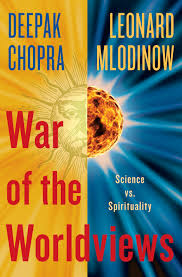
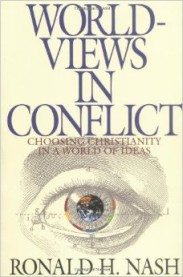
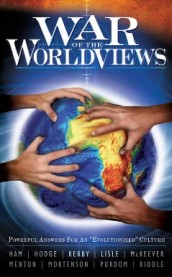
Irreconcilable world views:
- Christians believe that God alone is ultimately sovereign; nation states believe that they are sovereign.
- Christians believe that individuals are more important than "the masses", because each and every person is made in God's image and is unique (regardless of the individual or contributory value put on them by society). God reaches down and "lifts us up".
- Christians believe that the Body of Christ is "beyond borders" and classless, raceless, and should not be subverted by "national interests", including those that claim to be Christian, eg "One nation under God" (a fallacy, if ever there were one).
- Christians believe that the true church, the Body of Christ, is universal and eternal, and can never be bound by those who oppose it (2 Timothy 2:9).
- Christians believe that "enemies" should be loved unconditionally and forgiven (repeatedly).
- Christians believe that God calls us to love, obey and be committed to Him first and foremost ("Love the Lord your God with all your heart and with all your soul and with all your mind and with all your strength.", Mark 12:30), ahead of all other allegiances. We are to obey Him, and His book (the Bible). Non-Christians follow the "god of this world" (whether they know it or not (2 Corinthians 4:4).
- Christians believe that those who are "far off" are made near through God's grace, and become God's children; they are our spiritual family; they are closer than blood ties or ethnic/cultural allegiances; we are to love them, receive them, share with them.
This clash is compounded when the Christian community itself (often unintentionally, perhaps carelessly) confuses the debate by using language such as:
"Church Militant! Church triumphant."
"Let's take the nation for Christ."
"A new crusade.

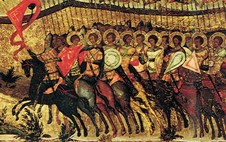
How do you think these declarations are interpreted by non-Christians? Are the sentiments accurate, rhetoric, misunderstanding, or just mistaken theology? Is it simply a matter of old terms being used in new settings and being misunderstood or misapplied?
We are called to love all people, unconditionally, with the love of Christ, not alienate them by the kind of militancy that characterised the likes of Jim Jones, or David Koresh and the Branch Dravidians, or boasting of "crusades" (the word itself derives from the word "cross) that reminds Muslims of the Middle Ages.
The three great monotheistic religions (Judaism, Christianity and Islam) emphasize the unity and uniqueness of God, but only Christianity claims and makes a relationship with Him possible.
v
Who is in charge? Whose lordship prevails? Whose prerogative wins out in the end? Christianity clashes in every one of the spheres of influence we discussed earlier in the course. God expects the world to yield to Him. Conflicts occur because "man" is proud, self-centred (not God-centred); he thinks he knows it all, but God declares that his (ie man's) wisdom is foolishness and that he (man) can only know truth via revelation. God's world view and those of the world are eternally irreconcilable. God truth is "inconvenient" truth to the world. Religious conflict is inevitable because God declares that human efforts are "not enough"; they are, in fact, an offence, a waste of time and effort and misplaced if they are not focussed on seeking Him. Society tries hard to become better, more beautiful, but the Gospel calls us unequivocally to "die" to ourselves:
"Those who belong to Christ Jesus have crucified the flesh with its passions and desires." (Galatians 5:24)
History and eschatology
Let's look at three areas (among many) in which Christian and non-Christian world views clash. The first concerns our views about the past and the future.


The term "clash of civilisations", a conflict between cultural and religious identities, was first popularised by political scientist Samuel P. Huntington (The Clash of Civilizations and the Remaking of World Order, 1996). Huntington suggested that ""The great divisions among humankind and the dominating source of conflict will be cultural. The clash of civilizations will dominate global politics." It has been expanded in common usage into a clash between East and West, between Islam and the rest of the world, highlighted over the past quarter of a century with the growth of Islamic extremism. Huntington's theses (criticized as a myth by the well-known Christian Palestinian writer Edward Said) have attracted both support and opposition around the world. But they have thrown into sharp focus how faith systems can collide with other entrenched interests.
Human history has been dominated by big movements and ideas. Modernism, rationalism, Enlightenment, Renaissance, industrial, scientific and information revolutions; empires, Rome, Greece, Mesopotamia, Egypt. Religion/myth have always played a big part in how people interpret history; consider the Hindu cosmology outlined in the Bhargava Gita, or the role of the "ancestors" in Aboriginal Dreamtime traditions. Our view of history informs and shapes how we think.
A popular perception today is that many of the problems that exist in the world are "caused by religion". This is a lazy (and blame-shifting) view of history.
How should we begin to interpret human history? What about coming to terms with natural disasters, or the problem of pain and suffering in the world? Is there a pattern, or is everything completely random? If God can raise Jesus from the dead why can't he stop genocide, tsunamis, earthquakes and epidemics like Ebola?
The events and message of the Old Testament usually had little in common with the physical world beyond the immediate reach of the Patriarchs and the nation of Israel. The ministry, death and resurrection of Jesus Christ challenged old ways but started out on a very small geo-political canvass far from the centres of power. The first church could easily have disappeared without a trace. The coming of the Holy Spirit and evangelism challenged the status quo and gave birth to the church but it took time and pressure to move Christianity out of Jerusalem and place it centre stage.
There was bound to be a reaction when uncompromising preaching of the message of Christ started to impact other cultures, when people changed, when valued traditions were challenged and communities were split.
There were many reasons for this; Christians put it down to a spiritual conflict:
"... men loved darkness rather than light" (John 3:19)
"The person without the Spirit does not accept the things that come from the Spirit of God but considers them foolishness, and cannot understand them because they are discerned only through the Spirit." (1 Corinthians 2:14)
If it is impossible to please God without faith (Hebrews 11:6), any world view that is not based on that faith (in God) is intrinsically hostile towards Him. We cannot afford to try to be neutral or blur the differences.
Clashes also occur when God is highjacked by civil religion:

Fundamental clashes exist between a Biblical Christian world view and all other world views.
- Christians hold to interpretations of the origin of mankind and the meaning of history that are different from much of the accepted social discourse
- from the very beginning Christianity (in the context of the Roman Empire), refused to submit to Caesar in matters of belief and confession
- our faith and understanding about "truth" come from different sources
- we preach concepts that are at odds with other belief systems, including:
- the Trinity
- exclusivity -John 14:6 is uncompromising; Jesus is THE way, truth and life; there is no other way to God
- the Bible (alone) is the true Word of God
- the Holy Spirit can be experienced and can change lives, uniquely recreated in the image of Christ
- prayer can move the heart of a personal God who is near and knowable
- we have different loyalties, objectives, values, ethics and priorities
- Christians have always challenged injustice, greed, corruption and violence that many in the world (especially those who seek and exercise power) take for granted
- we believe that all people are sinners (Romans 3:23) and are ruled by sinful desires; self-respectability and self-sufficiency do not cut it in the eyes of God (Luke 18:9-14); the only way to be right with Him and made "whole" is through repentance from the ways of the world, faith in Him through grace, and re-birth
- we encourage lifestyles that are different from the world views of others (and are an affront to many)
- Jesus offended many with His message. The New Testament speaks about the offence of the gospel in various places. Paul talked about the "offence of the cross" (Galatians 5:11), and Peter spoke of Jesus as "a stone of stumbling, and a rock of offence" (1 Peter 2:8).
- we claim different authority for our beliefs and actions ("Peter and the other apostles replied: 'We must obey God rather than human beings!' " (Acts 5:29)
- we have different beliefs regarding the meaning and purpose of life; consider the following (very different) views:
- "eat, drink and be merry, for tomorrow we die" (cited in 1 Corinthians 15:32)
- "I have loved you with an everlasting love; I have drawn you with unfailing kindness." (Jeremiah 31:3)
- "You have made us for yourself, O Lord, and our heart is restless until it rests in you." (Augustine of Hippo, early church father)
- "What is the chief end of man? Man's chief end is to glorify God, and to enjoy him forever." (Westminster catechism)
Most people believe they are right about their worldview. We should therefore not be surprised if non-Christians label Christians as "intolerant".
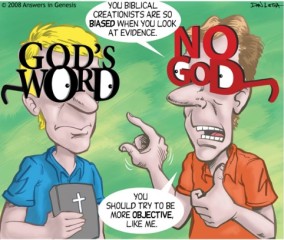
A Biblical Perspective:
"Where is the wise person? Where is the teacher of the law? Where is the philosopher of this age? Has not God made foolish the wisdom of the world? For since in the wisdom of God the world through its wisdom did not know him, God was pleased through the foolishness of what was preached to save those who believe.
Jews demand signs and Greeks look for wisdom, but we preach Christ crucified: a stumbling block to Jews and foolishness to Gentiles, but to those whom God has called, both Jews and Greeks, Christ the power of God and the wisdom of God. For the foolishness of God is wiser than human wisdom, and the weakness of God is stronger than human strength. Brothers and sisters, think of what you were when you were called. Not many of you were wise by human standards; not many were influential; not many were of noble birth. But God chose the foolish things of the world to shame the wise; God chose the weak things of the world to shame the strong. God chose the lowly things of this world and the despised things - and the things that are not - to nullify the things that are, so that no one may boast before him.
It is because of him that you are in Christ Jesus, who has become for us wisdom from God - that is, our righteousness, holiness and redemption. Therefore, as it is written: "Let the one who boasts boast in the Lord." (1 Corinthians 1:20-31)
Some people talk about "culture wars". This expression is problematic, because (when applied to the Church) it suggests that Christians are at war with society. Those who have studied such low points as the crusades might agree, but this is not the real reality. Those who participated in the violence of the crusades were "Christians" in name only.
Other writers talk about Christians "confronting culture" (eg When Worldviews Collide: Christians Confronting Culture, Caner, E, 2005, LifeWay Press). There are no culture wars, but there are different cultures, one is based on divine revelation, the other is based on human wisdom.

Christians live in the world, as responsible members of society, bosses/employees, neighbours, working with civic leaders and pulling our weight in the community, but we also possess another citizenship, in God's community here on earth and Heaven after that; we recognise and submit to a higher governance; we have a different allegiance:
"Our citizenship is in heaven. And we eagerly await a Saviour from there, the Lord Jesus Christ" (Philippians 3:20)
"For this world is not our permanent home; we are looking forward to a home yet to come. Therefore, let us offer through Jesus a continual sacrifice of praise to God, proclaiming our allegiance to his name." (Hebrews 13:14, 14 NLT)
The Christian world view is not about winning intellectual, ideological or even factual debates (although we can come across as that). It is about fundamental change. There is a time to challenge, a place for sound apologetics, but our world view needs to be transformational, life changing.
In mediaeval times God, angels, demons, saints, the supernatural, dreams and visions were part of everyday People had very different ways of interpreting life, the material and spiritual worlds and the future prevailed. In modern times we are seeing increasing secularisation of previously religious societies:
- science and knowledge are increasing, eliminating enslaving superstitions (that is a good thing, but then new challenges emerge, such as Darwinianism)
- people do not cease to have spiritual needs, desires and searches
- we have better informed bases for approaching the "big questions" of life
- Christian responses to change can be to change the message, to remove the offence of the cross ("apologetics" becomes "apologising")
- political correctness is being applied to tough issues, eg homosexuality, abortion, euthanasia, but modern thinkers will not engage Christians on a level playing field.
- Not a "clash of civilisations" per se, but of kingdoms: the Kingdom of God and the kingdoms of this world. Our long term (eschatological) expectation is that:
"The kingdom of the world has become the kingdom of our Lord and of his Messiah, and he will reign for ever and ever." (Revelation 11:11
Kingdom Living
The Christian concept of "Kingdom living" is confronting and poses choices. It is both future-looking and present. Jesus' call to his followers was unambiguous:
" 'Follow me,' Jesus said to him, and Levi got up, left everything and followed him. (Luke 5:27)
No man, having put his hand to the plough, and looking back, is fit for the kingdom of God. (Luke 9:62)
Jesus confronted legalism head on, eg healing on the Sabbath, forgiving sin, going into the homes of "sinners", talking to women and Gentiles. The story of the Good Samaritan radically confronted racial stereotypes.
Calling His disciples to carry a cross was a clash, because the cross was a popular form of rejection and execution in the Roman system and Jews despised anyone who was hanged.
"... but we preach Christ crucified, to Jews a stumbling block and to Gentiles foolishness, but to those who are the called, both Jews and Greeks, Christ the power of God and the wisdom of God" (1 Corinthians 1:22-24
The disciples stopped short when Jesus started talking about crucifixion - many liked His teaching but rejected the cross. People today acknowledge (even admire) the teachings of Jesus in broad philosophical (derivation: "love of wisdom") terms, but reject "butcher shop religion".
Christians believe that the return of Christ will mark the climax of human history. Islam looks forward to the return of Christ (not the return of Mohammed). The difference is that the soteriology (teaching about salvation) of Christians is based on redemption, assurance and hope. Islam and militant Hinduism seek to build earthly kingdoms. Jesus is building a heavenly kingdom. Christianity and other religions will always be on collision courses.

 When ideas collide.
When ideas collide.














